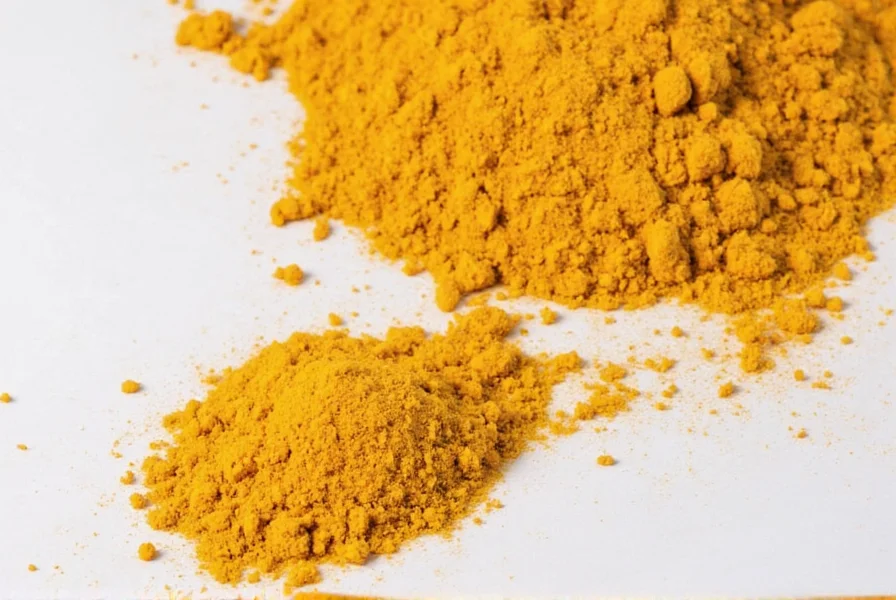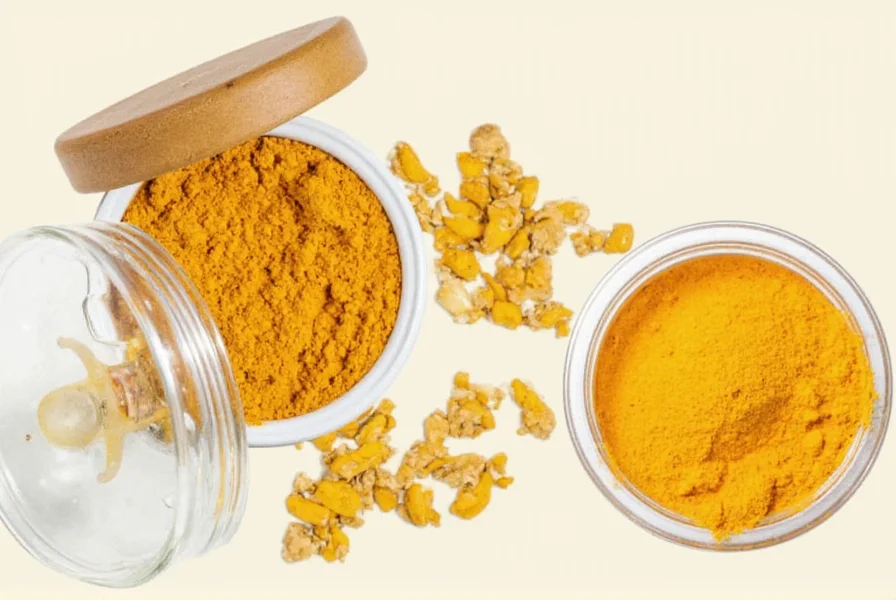When people ask what is the turmeric hack, they’re typically seeking clarification about popular wellness trends promising extraordinary health benefits from this golden spice. While social media often exaggerates turmeric’s effects, one scientifically supported practice stands out: enhancing curcumin absorption through strategic food pairing. This isn’t a shortcut or gimmick—it’s biochemistry in action.
The Science Behind Turmeric’s Bioavailability Challenge
Turmeric contains curcumin, a polyphenol with documented anti-inflammatory and antioxidant properties. However, curcumin faces significant bioavailability challenges: it’s poorly absorbed in the gut, rapidly metabolized, and quickly eliminated from the body. Research published in Planta Medica demonstrates that curcumin’s oral bioavailability is extremely low without enhancement strategies.

What the “Turmeric Hack” Actually Involves
The evidence-based approach commonly called the “turmeric hack” involves two key components:
| Component | Scientific Basis | Recommended Ratio |
|---|---|---|
| Turmeric (curcumin) | Active compound with potential health benefits | 500-2,000 mg daily |
| Black pepper (piperine) | Inhibits liver metabolism and increases intestinal absorption | 5-20 mg per dose |
| Healthy fat | Curcumin is fat-soluble; improves absorption | 1-2 tsp per serving |
This combination, particularly the piperine-curcumin pairing, has been studied extensively. A landmark study in Planta Medica (1998) found that adding just 20 mg of piperine to 2 grams of curcumin increased bioavailability by 2,000% in human subjects. More recent research in Food & Function (2020) confirms these findings while noting optimal ratios for maximum effect.
Debunking Common Misconceptions About Turmeric Hacks
While the black pepper combination has scientific backing, many “turmeric hacks” circulating online lack evidence:
- “Turmeric water cures chronic diseases” – No evidence supports turmeric water alone as a treatment for serious conditions
- “Turmeric supplements work better than food sources” – Quality varies significantly; many supplements lack proper formulation for absorption
- “More turmeric equals better results” – Excessive consumption can cause digestive issues and interact with medications
Evidence-Based Ways to Maximize Turmeric Benefits
For those exploring what is the turmeric hack with legitimate scientific basis, these methods deliver measurable improvements in curcumin utilization:
1. The Black Pepper Combination (The Real “Hack”)
Adding just a pinch of black pepper (about 1/20th of a teaspoon) to turmeric-containing dishes significantly enhances absorption. This addresses the core limitation of how to maximize turmeric absorption through a simple kitchen adjustment anyone can implement.
2. Fat-Assisted Preparation
Since curcumin is fat-soluble, consuming turmeric with healthy fats (like coconut oil, olive oil, or avocado) further improves absorption. This explains why traditional preparations like golden milk—which combines turmeric with milk (or plant-based alternatives) and fats—have endured for centuries.

3. Heat Activation
Gentle heating (as in cooking) can increase curcumin solubility. However, prolonged high heat degrades curcumin, so moderate cooking temperatures yield the best results for turmeric golden milk recipe benefits and other preparations.
Important Considerations and Safety
Before implementing any turmeric with black pepper benefits strategy, consider these evidence-based guidelines:
- Dosage matters: Most studies use 500-2,000 mg of curcumin daily. Excessive amounts may cause gastrointestinal discomfort
- Medication interactions: Turmeric may interact with blood thinners, diabetes medications, and certain chemotherapy drugs
- Pregnancy considerations: High doses aren’t recommended during pregnancy without medical supervision
- Quality varies: Turmeric root contains only 2-8% curcumin by weight; supplements range widely in actual curcumin content
Consulting with a healthcare provider before making significant dietary changes is always recommended, especially for those with existing health conditions or taking medications. This is particularly important when exploring does turmeric really have health benefits in specific medical contexts.
Practical Implementation: Beyond the Hype
Understanding what is the turmeric hack means separating evidence-based practices from wellness fads. Here’s how to implement the scientifically supported approach:
- For cooking: Add 1/4 teaspoon black pepper to any turmeric-containing dish (curries, soups, roasted vegetables)
- For golden milk: Combine 1 teaspoon turmeric, 1/4 teaspoon black pepper, 1 cup milk, and 1 teaspoon healthy fat (coconut oil)
- For supplements: Choose products containing both curcumin and piperine (standardized to 95% curcuminoids and 5-10mg piperine)
These methods address the genuine challenge of scientific basis for turmeric hack without making unrealistic promises. The real value lies not in miraculous cures but in optimizing a traditional spice’s potential through understanding human biochemistry.
Conclusion: Evidence Over Hype
The legitimate “turmeric hack” centers on improving curcumin bioavailability through strategic food combinations—primarily with black pepper and healthy fats. While this approach has solid scientific backing, it’s crucial to maintain realistic expectations about turmeric’s effects. Rather than viewing it as a miracle cure, consider it one component of a balanced approach to wellness supported by nutritional science. When exploring evidence-based turmeric consumption methods, focus on consistent, moderate use as part of an overall healthy lifestyle rather than seeking quick fixes.
What exactly is the turmeric hack everyone talks about?
The turmeric hack refers to combining turmeric with black pepper to significantly increase absorption of curcumin, turmeric's active compound. Scientific research shows that piperine in black pepper can enhance curcumin bioavailability by up to 2,000% by inhibiting certain metabolic processes in the liver and intestines.
Does the turmeric and black pepper combination really work?
Yes, multiple peer-reviewed studies confirm this effect. A landmark study published in Planta Medica (1998) demonstrated that adding 20mg of piperine to 2g of curcumin increased bioavailability by 2,000% in human subjects. More recent research continues to support these findings while refining optimal dosage ratios.
How much black pepper should I use with turmeric?
Research suggests 5-20mg of piperine is sufficient to enhance absorption. In practical terms, this equals about 1/20th to 1/10th of a teaspoon of black pepper per serving of turmeric. You don't need large amounts - a pinch is typically enough to achieve the bioavailability benefits.
Can I get the same benefits from turmeric supplements alone?
Most standard turmeric supplements have poor bioavailability without enhancement. Look for products specifically formulated with piperine (often labeled as 'bioavailable curcumin' or 'curcumin with piperine'). Even then, the food-based approach of combining turmeric with black pepper in cooking remains a cost-effective and natural alternative.
Are there any risks to using the turmeric hack regularly?
While generally safe for most people, excessive consumption may cause digestive issues. Turmeric can interact with blood thinners, diabetes medications, and certain chemotherapy drugs. If you have gallbladder issues or are pregnant, consult your healthcare provider before regular use. The key is moderation - typical culinary amounts are considered safe for most adults.










 浙公网安备
33010002000092号
浙公网安备
33010002000092号 浙B2-20120091-4
浙B2-20120091-4